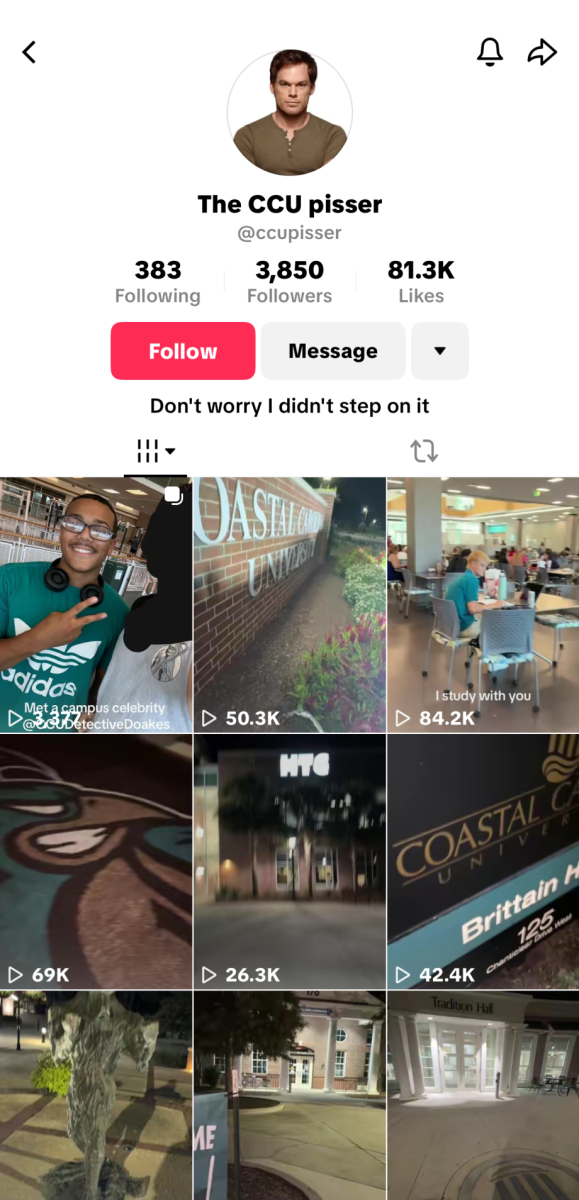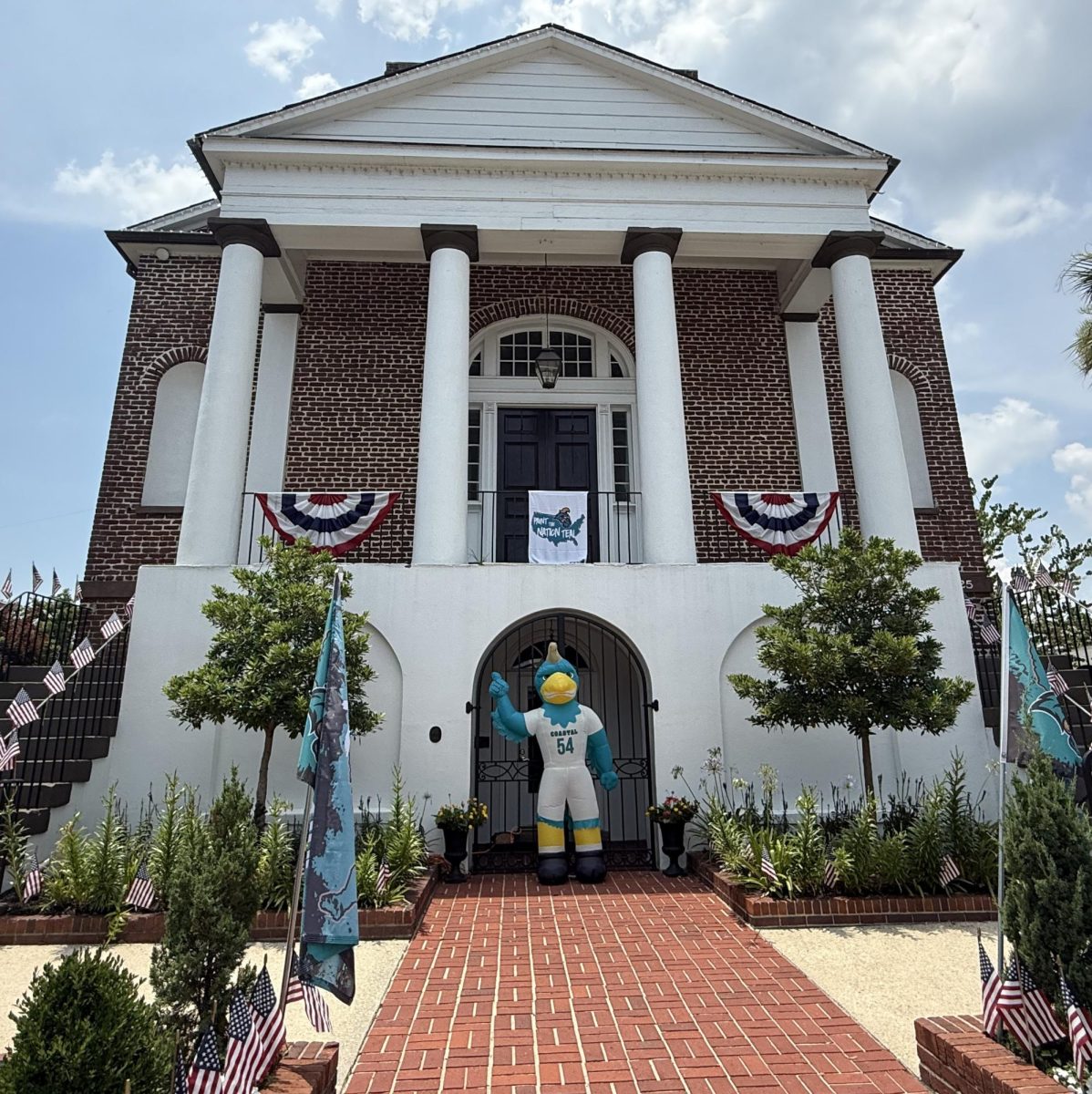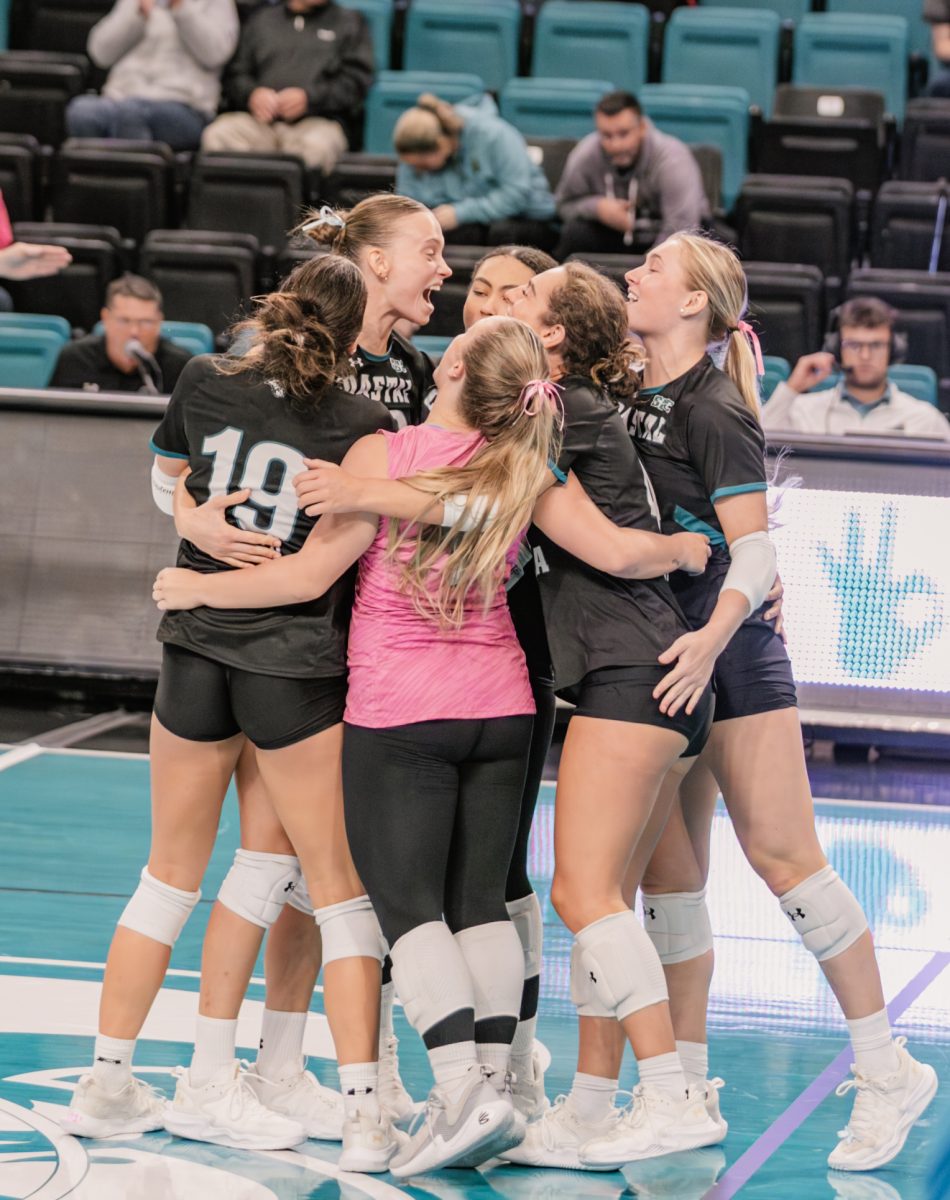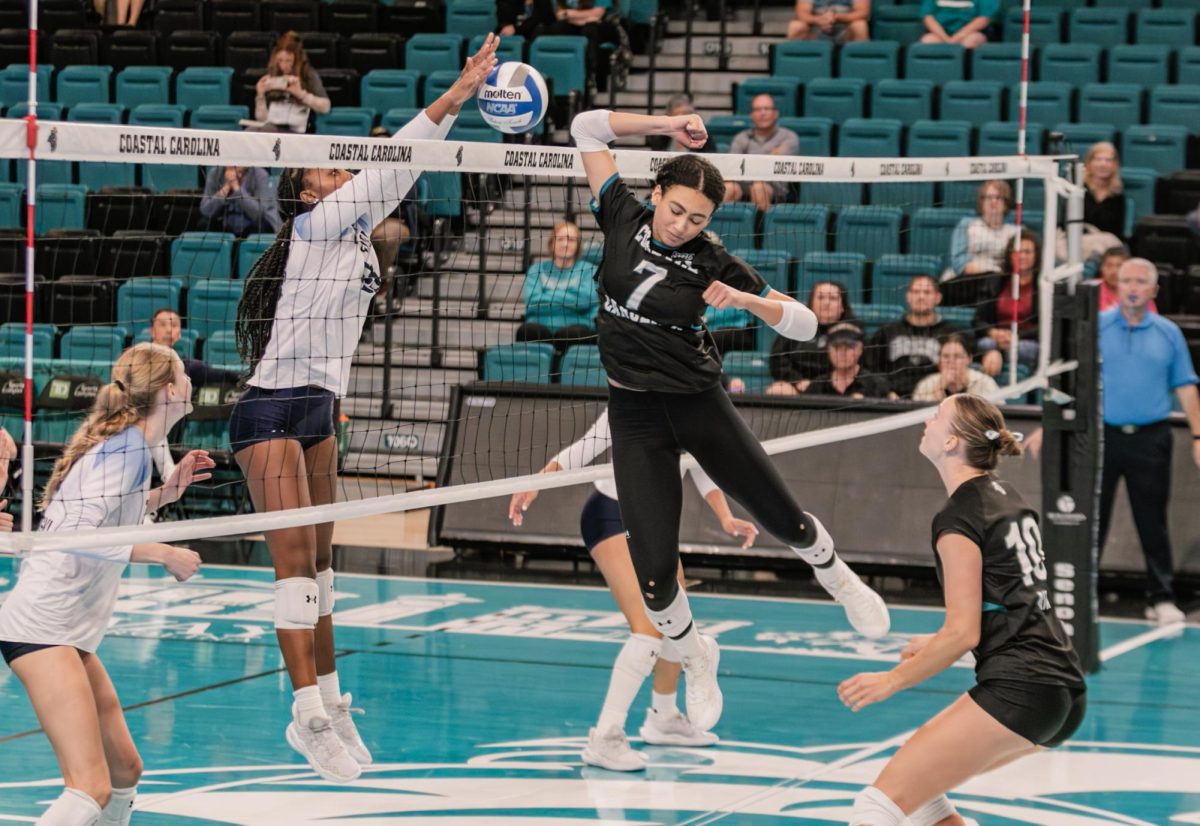The Women, Witches and Witchcraft interdisciplinary studies (IDS) class educates students about historical events and how those themes can be applied to the present day.
Professor Jessica Liggon taught Women’s and Gender Studies when she started at Coastal Carolina University. When she was asked to teach an IDS course this fall, she had the idea for a Women, Witches and Witchcraft class from her thesis statement for graduate school, which dealt with ideas of possession.
Liggon said the main textbook of the class is the “Malleus Maleficarium” written by two Catholic priests. This book defines what a witch and witchcraft was, and how to take a witch to trial. The class uses additional articles and videos as well.
In the class, students can learn about the historical significance of witches and paganism, as well as the folklore surrounding witchcraft. She said many parallels can be made between the 14th and 15th century witch hunts and current society.
“Possession or witchcraft with women, I almost call it ‘acting out,’ has to do with when you are feeling oppressed and can’t express yourself,” Liggon said. “That it’s a way of expressing yourself.”
Junior Philip Merriweather cited the historical aspects of the class, and said he enjoyed learning about how witches were defined at the time.
“Their reasoning for why witches are witches, it just doesn’t make sense,” he said. “But it’s interesting.”
The class draws parallels between the teachings they learn with what goes on today. According to Liggon, some of these parallels include name calling and sexual assault accusations.
In the future, Liggon said she hopes to teach a class that aligns with themes of women, witches and witchcraft, as well as women’s and gender studies.
IDS classes are an opportunity for students to branch out, Liggon said, because it doesn’t fixate you into one set of learning.
Multiple students in the class were interested in what they learned, and said it was different than what they originally thought the class would be.
Junior Sarah West said she took this class to fill her humanistic thought credit. She said the classes that fill that credit usually deal with similar themes of philosophy. However, she said this class is different from the others.
“You get to switch it up and it’s not the same thing over and over again and repetitive,” she said.
Liggon said students will be doing a case study closer to Halloween.
This course may be repeated if students at Coastal express an interest in taking it, and those looking to learn more can contact Elizabeth Baltes or Ina Seethaler for more information.





















